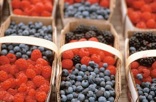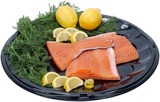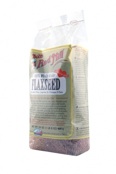THE ANTI-INFLAMMATORY DIET
I attended The Myositis Association’s Annual Conference in September of 2008. The following notes came from the session I found to be the most exciting of all the sessions I attended. I hope it will be helpful for others as well.
“The Effects of an Anti-inflammatory Diet in Myositis Patients”
by Rose Mary Istre, MA
Kimberly Wilhoit, BS
Introduction:
This research project started with rat studies:
Older rats were fed a quality diet that was high in antioxidants and omega 3’s. A younger
subgroup of rats were put on a typical “American” diet. The younger rats performed better at first, but
after several weeks of the superb diet, the older degenerating rats outperformed the younger ones!
The researchers then went on to develop a study using Dermatomyositis support group members.
Defining Our Issues: Depression, The Triple whammy
1) We are situationally depressed by the life changes brought on by our illnesses
2) chemically depressed by the inflammatory processes in our brains
3) medically depressed by our medical interventions
Inflammatory processes:
cytokines brought on by our illnesses
oxidation brought about by free radicals with aging
Connected Reading:
• A must read : Inflammation Nation by Floyd Chilton and Laura Tucker
• Dr. Nicholas Perricone wrote The Perricone Prescription: A Physician’s 28-Day Program for Total Body and Face Rejuvenation
Three Components to the Anti-inflammatory Diet:
1) High omega-3 fatty acids: flax seed, salmon, pumpkin seeds, etc.
2) High in antioxidants (blueberries, spinach, açai berry, pomegranates, goji berries, etc.)
3) Low in glycemic foods (low sugar)
Hypothesis:
That an Anti-inflammatory diet would have an effect on the inflammatory process in myositis
leading to an increase in muscle strength and decrease in those underlying inflammatory
processes
Method:
Rose Mary Istre performed a double blind study for 12 weeks with a “regular American diet” vs. the
experimental diet using DM patients from her Myositis support group.
Experimental Diet:
• 5 fish meals a week, not fried, preferably Pacific/Alaskan wildcaught salmon--no farmed salmon
• lean protein (minimal beef)
• veggies high in antioxidants: spinach, broccoli, bright colored veggies as much as possible
• no sugar veggies, such as corn and carrots
• non roasted nuts
• whole grains, cooked cereals
• avoid high glycemic foods: white carbohydrates, soft drinks, cold cereals, juices--especially orange juice
Measurements:
Anecdotal:
• patients filled out their own functional markers before and after: things like climbing stairs, carrying objects,
Hard Data:
• no blood tests or biomarkers were used
• measured grip strength with a dynamometer
• arm strength, leg strength
• ease of daily activities (activity index)
• Depression (using Beck Depression Inventory)
• Food was rated by numbers in order to create the stats
Results:
• Improvement seen in grip, arm, and leg strength, activity level and decreased depression
• most significant results were in depression which were quite outstanding
• Statistically very strong
Conclusions:
• due to the increased muscle strength and lowered inflammation processes, the anti-inflammatory diet is a
possible adjunctive treatment to the traditional medical approach
• improved mood
Questions/Discussion:
• no albacore because of mercury, unless certified
• only Pacific/Alaskan wildcaught Salmon; all other types of salmon are farmed and have higher fat contents
which is where toxins like mercury are stored.
• no bottom feeding fish
• dairy is neutral
• eggs are ok, but should be natural, free run and grain fed
• cold cereals, too much sugar, added nutrients not good
• rice milk is better than soy--soy can present problems for cancer patients
especially breast cancer
• alcohol: red dry wines are lowest in sugar but higher in antioxidant qualities
• no instant oatmeal only whole grain oatmeal
• olive oil is very good if you are going to use oils
• frozen wild blueberries by Tiff or dole are very high in antioxidants
• avoid grapes because of the sugar content
• Make non roasted trail mix
• non-roasted nuts, choose those lower fat varieties
• minimize dried fruits because of the high sugar content
• look at the high antioxidant juice ingredients and avoid those that have multiple ingredients
• avoid regular fruit juices in general
• multi grain whole grain breads, not just whole wheat bread
• be careful with fresh raw veggies during flu season because they are handled by many people
• white potatoes are not recommended, sweet potatoes are better
• turmeric and cinnamon are very good antioxidants
• tomatoes are great, even cooked (olive oil with tomatoes is a very good combo; the olive oil helps the
absorption of the lycopenes
• dark chocolate with low sugar content (cocoa nibs has no sugar, but high in antioxidants)
• use honey minimally
• pomegranate juice is very good!
• sweeten your tea with pomegranate juice
• cheese is pretty neutral
• Use yogurts that have no added sugars and mix in your own fruits or nuts
• Use flaxseed meal, not the whole seeds
• Studies show it is better nutritionally to eat real antioxidant and Omega foods over and above relying on
supplements



